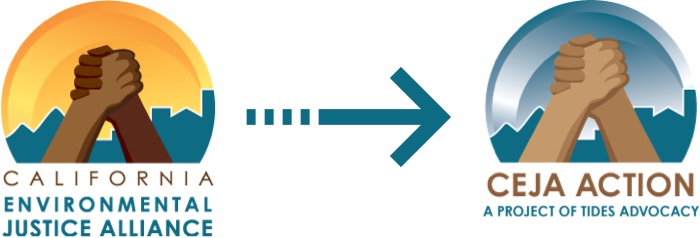2019 Environmental Justice Scorecard
Environmental Justice Scorecard
 CEJA Action is proud to release our exclusive scorecard for the 2019 legislative session!
CEJA Action is proud to release our exclusive scorecard for the 2019 legislative session!
The scores are in! We’ve graded all 120 California legislators on their support for environmental justice principles, and we’re delighted to share the results. With this year’s session about to rev up, now is the perfect time to look at the votes cast in 2019 and see who stood up for California communities — and who didn’t.
With California at the vanguard of the national environmental justice movement — and in the face of continued troubling developments at the federal level — we expect legislators to show up and stand up for environmental justice. Who could California communities count on in 2019? It’s time to find out.
Download CEJA Action’s Environmental Justice Scorecard here!
Environmental Justice Champions
After thoroughly reviewing the votes and actions of every representative in Sacramento, we are proud to name four legislators as Environmental Justice Champions!
Senator Connie Leyva — Introduced landmark smog check bill to protect transportation corridor communities (SB210) and took a tough stand against SB25 — which would have weakened the critical protections in CEQA — one of very few Senators to do so. Sen. Leyva’s leadership went beyond casting a vote to using op-eds and speeches to make a persuasive public case for environmental justice.
Assemblymember Monique Limón — The people of California have no more steadfast champion for environmental justice in the capitol. Asm. Limón authored a bill reorienting the focus of the DOGGR (Division of Oil, Gas and Geothermal Resources) to focus on public health and climate. She is a firm voice for justice on the Natural Resources Committee.
Assemblymember Al Muratsuchi — Worked overtime on environmental justice, partnering with advocates to introduce numerous high profile bills. Asm. Muratsuchi fought for passage of AB 342 — protecting public lands from extraction — and AB 345, which will enhance the health and safety of oil and gas communities. Used his voice to take the battle against AB 1299 public, helping to kill a bill opposed by EJ advocates across the state.
Assemblymember Eloise Gómez Reyes — In addition to authoring key legislation that protects environmental justice communities, Asm. Gómez Reyes is a model of accessibility. No person in the Capitol gives more public support to community initiatives or is more consistently available to engage in dialogue with environmental justice advocates. In both her voting record and public engagement, she is a true environmental justice champion.
Download CEJA Action’s Environmental Justice Scorecard here!
The Big Picture
In 2019, the environmental justice movement gained undeniable momentum — all 11 bills that CEJA and its allies lobbied for in Sacramento passed, and were signed into law by Governor Newsom. Harmful legislation designed to undercut the environmental justice movement was successfully killed before becoming law. And in another show of our movement’s strength, a quarter of all representatives earned perfect 100’s by voting for each critical bill.
2019 also brought major challenges.. Many of the bills CEJA and its allies fought for were watered down by carve outs and amendments, earning them wider support but limiting positive impacts for environmental justice communities.
Above all, weneed more EJ Champions in 2020. The more legislators who are willing to stand up for California families and communities against corporate polluters, the stronger legislation will be when it arrives at the Assembly and Senate for votes.
See the scores for all 120 California legislators here.
Grading the Governor
Governor Newsom’s first year was strong on environmental justice issues. Over the year Gov. Newsom, and advocates, scored significant advances for the environmental justice community
- SB 200, a bill for safe drinking water, passed after failing numerous times in past years.
- All 11 EJ priority bills made it to the Governor’s desk and every single one was signed.
- Strong executive action was taken against the dangerous pesticide chlorpyrifos.
- DOGGR will see its name and purpose adjusted to focus on climate and health issues.
- Many procedural improvements in strengthening review of potentially dangerous permits for oil extraction.
However — despite these legislative successes, we are disappointed with the Governor’s refusal to meet directly with Environmental Justice communities or consult EJ advocates before making key appointments, as well as his veto of SB1, a vital piece of environmental legislation.
Though Governor Newsom deserves credit for the year’s legislative wins, we call on him to fully embody our Environmental Justice principles of dialogue and community-first engagement, and call on the expertise community advocates possess on local issues. Only when the Governor is fully committed to engaging with our EJ communities will California become a national leader on Environmental Justice.
Advancing our Principles
Every inch of the Scorecard is guided by the principles of the environmental justice movement. As we deepen our work, and attempt to set clear expectations for California elected officials, we will use 2020 to boost transparency and our legislators’ commitment to these values. In 2020, we ask our lawmakers to:
- Prioritize and value prevention, human health, and improved quality of life: Human health and well-being must be given full weight, not overlooked for business interests or “cost effectiveness”
- Do no harm: Decisions must do no further harm to environmental justice communities.
- Prioritize environmental justice communities: Confront the tragic, historic legacy and ongoing disproportionate placing of polluting sources in environmental communities, as well as the trend of disinvestment in those neighborhoods.
- Meaningfully engage with communities: Decisions informed by residents of environmental justice communities, which means decision-makers have to be proactive and culturally relevant in soliciting input on actions to improve health, responsive to the community concerns and transparent in their work, to ensure continued engagement and accountability for decisions.
- Be proactive: Decisions should not wait for communities to bring forth solutions, instead proactively reaching out to impacted community groups for ideas and feedback.
- Take intersectional approaches: Environmental justice communities are systematically disenfranchised and experience the impacts of patriarchy, racism and state violence. To ameliorate systemic exclusion, we must partner to advance intersectional solutions that creatively address the multiple crises faced by Californians.
- Be responsive: Decision makers need to be responsive and accountable to community concerns when addressed. Offices should make continued discussion a priority, working on an issue until it is resolved .
- Respect community expertise: Environmental justice communities are experts in their communities, and know the solutions they want to see. But too often, community voices are ignored for lack of “verification”, which delays action that could prevent further harm. Decision-makers should turn to community leaders for input and trust what they are told.
Looking Ahead
Not to be lost in the massive federal election and numerous Senate and Assembly seats up for grabs are the numerous EJ battles that will be front and center in 2020:
- Department of Toxic Substances Control — CEJA and its allies have worked for years to build momentum for meaningful changes to DTSC, pushing it to center experiences of community members impacted by toxic waste. In 2020, we look forward to bringing community voices to the forefront of DTSC reform.
- Managed Decline of Oil and Gas — California must prioritize public health concerns as we build a fossil-fuel free economy. In 2019, CEJA had to spend considerable effort to defeat AB1299, which would have relaxed refinery regulations, leading to more pollution and higher human cost. As we move forward this year, we hope to focus CEJA efforts on ensuring community health is never sacrificed for economic gain.
- Decarbonization — California must chart a path toward decarbonization of our energy sector. One key step on this journey — which CEJA supports — is enabling public entities to purchase power, rather than relying on investor owned utilities, like PG&E, to address gaps. We must continue this conversation in 2020 and beyond.
- Just Transition — CEJA and our members continue to support a workforce transition as a critical part of equitable climate policy. We will never build the healthy communities we need — or win the buy-in of these communities — if fair and equitable futures for workers in downsized industries are not considered.
Now more than ever, we need EJ Champions to ensure the fight for environmental justice won’t get lost in the 2020 shuffle.
2020’s EJ Champions will be those who not only vote with EJ issues in mind, but use their voice and power to keep environmental justice — for all Californians — at the front of the conversation.


